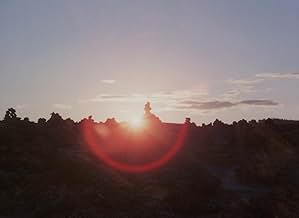IMDb RATING
7.7/10
2.7K
YOUR RATING
A young boys' coming of age tale set in a strange, carnivalesque village becomes the recreation of a memory that the director has twenty years later.A young boys' coming of age tale set in a strange, carnivalesque village becomes the recreation of a memory that the director has twenty years later.A young boys' coming of age tale set in a strange, carnivalesque village becomes the recreation of a memory that the director has twenty years later.
- Awards
- 1 win & 2 nominations total
Masahiro Saito
- Longsocks
- (as Masaharu Saitô)
Yôko Ran
- The Hunchbacked Girl
- (as Yoko Ran)
Izumi Hara
- Phantom of old woman
- (as Sen Hara)
- Director
- Writer
- All cast & crew
- Production, box office & more at IMDbPro
Featured reviews
Mesmerizing and stunning in every possible way.. A Masterpiece, folks.
One of the greatest cinematic experiences i've ever had.
10mobia
Few films are as audacious and unrelentingly imaginative as this one. Set in a dreamlike rural Japan, the story starts out to be about an adolescent boy's attempt to escape his overprotective mother and then surprisingly becomes a filmmakers desire to confront his own elaborated creation. There is also an effort to reconcile the individual with the collective or old and new Japan through this parade of emblematic images. Gossiping women wear sinister eye patches. An outcast simple-minded woman drowns her own baby and later returns as a sophisticated prostitute. A circus fat lady yearns to have her fake body inflated by a dwarf. Curious and astounding scenes abound, all contributing to an overwhelming experience of a creative mind interrogating itself.
Childhood is something that cannot ever be exploited.
In every film where a childhood is depicted, it's never 1 to 1. It's never reality. Reality is boring and it's not interesting, except for the originator. Shuji Terayama, another director I discovered because of LB, knew this and had to Fellinicise, to Parajanovicise, poeticise, abstracise his childhood. Maybe something thin of reality is still there, but something that's common to all of us.
I will not revisit this film, ever. I didn't connect to it and the visual style alone is not something that powerful for me to cling on. But I can appreciate the symbolism of it, the cinematography, the little stories, and what those stories tried to tell, but I will be frank, not all of them were understandable and need multiple viewings to be really digested.
Time is another big theme here and somehow present in every scene through watches, ticking clocks, time paradoxes and even cicadas in the background.
In every film where a childhood is depicted, it's never 1 to 1. It's never reality. Reality is boring and it's not interesting, except for the originator. Shuji Terayama, another director I discovered because of LB, knew this and had to Fellinicise, to Parajanovicise, poeticise, abstracise his childhood. Maybe something thin of reality is still there, but something that's common to all of us.
I will not revisit this film, ever. I didn't connect to it and the visual style alone is not something that powerful for me to cling on. But I can appreciate the symbolism of it, the cinematography, the little stories, and what those stories tried to tell, but I will be frank, not all of them were understandable and need multiple viewings to be really digested.
Time is another big theme here and somehow present in every scene through watches, ticking clocks, time paradoxes and even cicadas in the background.
Not only surrealism but in general the overall balance of the film and the absurdity of the cinematography made all so natural, made the film what it is. So ahead of its time a simple treasure for the film community.
In what may or may not be an auto-biography, Terayama explores his past and the relationship we have with our memories, in a grotesque serie of poetic symbolism, bizarre surrealism, haikus, tragic tales of love and innocence, beautiful scenery and interesting cinematography, all wrapped in a self-referential, intellectually thought-provoking exploration of how our lives are affected by our childhood memories. A magnificent balance between indulgent surrealism and thoughtful objectivism, while still not being really experimental.
Did you know
- TriviaThis film was one point included in the Official Top 250 Narrative Feature Films on Letterboxd.
- ConnectionsReferenced in Ore 5.35. tangenziale est (2008)
Details
- Release date
- Country of origin
- Language
- Also known as
- Pastoral: To Die in the Country
- Filming locations
- Production companies
- See more company credits at IMDbPro
- Runtime1 hour 44 minutes
- Sound mix
- Aspect ratio
- 1.37 : 1
Contribute to this page
Suggest an edit or add missing content
























